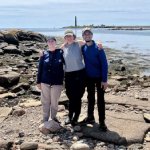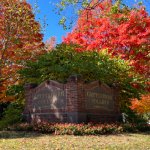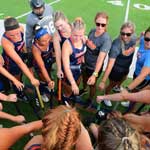

Through Musselman Library’s Digital Scholarship Summer Fellowship (DSSF), students are not only learning valuable professional skills and conducting innovative research, but they are also breaking down the divide between scholars and the general public.
“There is an increasing emphasis in higher education on communicating complex scholarship to general audiences,” said Assistant Dean and Director of Scholarly Communications Janelle Wertzberger. “You should be able to communicate your research to other scholars, of course, but you also need to be able to communicate it to general audiences, too—otherwise, what’s the point?”
This is one of several outcomes of the DSSF program, which has fellows conducting the same type of research they would for a class or an academic paper, but presenting it in a way that is more accessible to the public.
In the process, fellows are learning digital literacy skills, the kind that are often in high demand by a constantly evolving—and increasingly digital—workforce.
“Students are learning broad-based skills that are required for any type of project that utilizes the internet,” said Systems Librarian R.C. Miessler. “These are useful job skills that they can take into the world and do something with.”
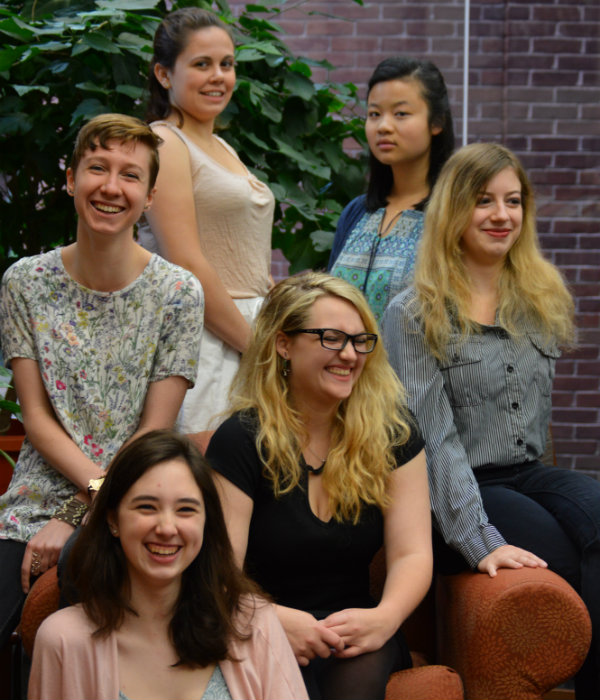
The Digital Scholarship Summer Fellows from 2016 and 2017.
This year’s fellows have finished work on their individual projects. Emma Lewis ’20 completed on a historical walking tour of the borough of Gettysburg; Christina Noto ’19 is explored Civil War sheet music; and Brittany Russell ’19 researched the provenance of several art pieces acquired by Special Collections.
Previous projects included the creation of a collection about student activism at the College by Lauren White ’18; an interactive website examining West Point graduates during the Civil War years by Julia Wall ’19; and a snapshot of college life for women at Gettysburg during the 1950s by Keira Koch’19.
Students spend their summer conducting research and attending workshops in order to learn the various digital tools they have at their disposal as they turn their research into a sustainable multimedia project. They are also able to attend conferences throughout the summer, where they not only learn the latest trends and technologies in the digital humanities field, but where they are also allowed to present their research.
One such conference was created through a partnership between Gettysburg, Ursinus College, and Muhlenberg College. The partnership is supported by a $17,000 grant from the Pennsylvania Consortium for the Liberal Arts (PCLA) in order to enrich consortial efforts in faculty development, blended and digital learning, and interfaith initiatives.
“The workshop gave us access to training opportunities that we wouldn’t otherwise have, which of course is what makes membership in this consortium so positive for those of us that serve at smaller schools,” Robin Wagner, director of Musselman Library said. “We can do more and do better things together, by pooling our human and financial resources—far more than we could do alone.”
The impact it has had on the students involved is not to be underestimated.
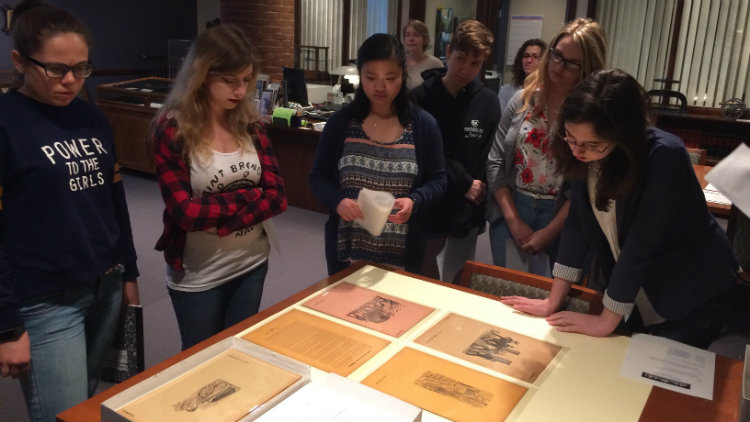
“Students really walk away from this program with an improved sense of confidence in their abilities as scholars and people who work in technology,” Miessler said.
Wertzberger agreed.
“I see them moving from feeling like students to feeling like young scholars who are part of a larger community who can hold their own in that community,” Wertzberger said. “They have something to contribute, and have shown that they can rise to the challenge when given the opportunity.”
